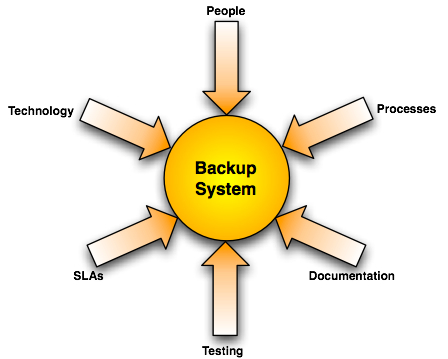To be perfectly blunt, staff training in backup and recovery products is somewhat of an uphill battle.
There’s a commonly held belief in many organisations that knowledge and understanding of backup products, even enterprise ones, should be acquired on the job via a review of product manuals and online forums.
Yet data protection is somewhat unique in this assumption – there are few organisations that believe storage administrators should learn how to manage the arrays that critical production data resides on: after all, one mistake and significant data loss can occur. If not data loss, significant production issues – slow downs, outright stalls, reduced failure capabilities, etc.
Backup and recovery systems touch on even more components of an environment than storage – arguably, in terms of IT, they may touch on more items of an environment than even the IP network (after all, they can encompass fibre networking as well). The reach of an enterprise backup system, fully deployed and fully protecting an organisation, is staggering in its breadth.
Trying to manage that using untrained staff is like trying to manage the fleet maintenance for an airline using self-taught mechanics who have excellent access to instruction manuals. Sure, they may muddle through regularly – but how well do they really understand what they’re doing?
10-15 years ago, the real struggle in IT was to get management to recognise the need for backups.
Now, the struggle is to make sure IT and business management understand they don’t really have a backup system until they have trained administrators. After all, if you look at what goes into making a backup system, the technology itself only plays a small part:
All those components are actually fairly disparate – and there needs to be a unifying factor. That unifying factor is actually training; knowledge-empowered staff are able to appropriately test, are able to utilise the documentation and the technology to integrate with the processes, are able to liaise on the establishment of SLAs, etc.
Without training, everything comes with a higher risk factor. Sure, with training there still is a risk factor, but training can significantly diminish it.

